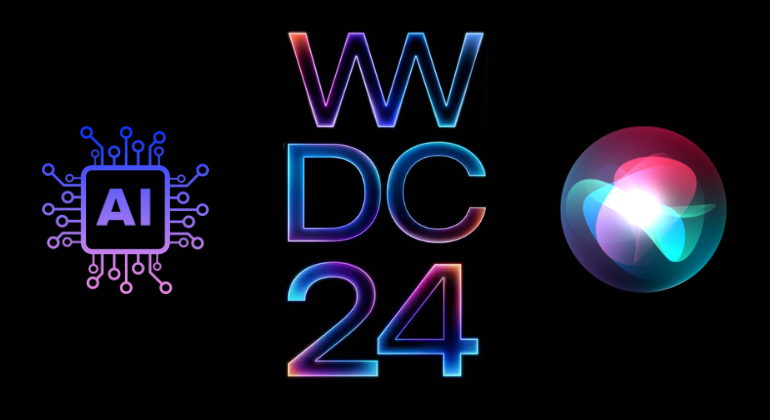The tech giant’s announcement on June 10 at the Worldwide Developers’ Conference in Cupertino, California, that it is introducing generative AI across iPhone-specific apps like iMessage and Siri, could herald a new stage in the AI wars. Tim Cook, the Chief Operating Officer of Apple, will be speaking at the conference. The real highlight of the developer conference, though, will be seeing how Apple intends to integrate AI capabilities into its enormous installed base of 2.2 billion iOS devices. Apple’s unique selling point may be its emphasis on fostering user trust in the application of AI. This could help them avoid the problems that Google and other companies have run into when implementing AI inadvertently in their messages.
According to Benjamin Kuipers, a professor of computer science and engineering at the University of Michigan, “It is understandable that these major corporations are in desperate competition for leadership, in one form or another, in developing and deploying AI,” thevellapanti.in reports. However, trust is a fundamental quality for people, businesses, and society at large. Losing trust makes planning more challenging, and executing those plans is more expensive and risky.
Contrary to the fanfare, Google, OpenAI, and Microsoft have generated news in recent months for all the wrong reasons, revealing another aspect of artificial intelligence. First, just two weeks after its launch, Google had to withdraw its AI Overview search engine due to strange and erroneous results. Subsequently, OpenAI faced criticism for appointing a ChatGPT voice that bore striking similarities to Hollywood actress Scarlett Johansson, an allegation refuted by the ChatGPT developers. But this sparked a wider discussion about the new dangers that the AI era brings, such as voice ownership. The new line of Copilot Plus PCs, which was dubbed a cybersecurity “disaster” and had a new AI-powered Recall function that records everything you do on your computer, cast doubt on Microsoft’s AI ambitions. Microsoft then reversed course on the controversial “Recall” feature in response to a criticism about privacy.
Kuipers noted the recent instance of Google’s AI Overviews search feature. “The recent revolution in AI, building on deep neural networks, large language models, and generative AI, has enabled new levels of performance at the cost of incomprehensibility of the mechanisms and occasionally significant hallucinatory errors,” Kuipers said. He mentioned how much people’s trust in Google was damaged by these mistakes.
It is difficult to resist joining the AI movement because of the sense of urgency and the dread of falling behind, a point that is sometimes overlooked in the broader AI landscape. Big Tech gains the upper hand since people will be drawn to any AI tool or feature they introduce. The truth is that it’s frequently unclear how new technology functions and eventually helps individuals and society as a whole.
Although many are criticizing Apple for being behind the times and disregarding the possibilities of artificial intelligence (AI), Cupertino has a track record of being very careful when embracing new technologies, and its views on privacy are well-established. Experts predict that Apple’s AI strategy will probably focus more on protecting customer privacy than how other companies handle it.
“Neither Apple’s entire business is at stake, nor is it on the same AI cadence as Google,” pointed out Anisha Bhatia, a senior technology analyst at GlobalData. Thus, Apple can and will go slowly when it comes to generative AI.
Bhatia concurs that with Microsoft and OpenAI posing such fierce competition, Google cannot afford to wait around to incorporate AI into its core offerings. However, Bhatia asserts that Android, the popular mobile operating system with billions of users, represents Google’s real asset. Faster GenAI feature deployment by Google will only help the search engine behemoth by connecting with customers directly through well-known goods and services.
Apple and Google might utilize distinct company strategies. Nonetheless, both are dominant platforms with a sizable installed base owing to their own mobile operating systems and their power over billions of daily users through their applications. Using an Android device, Google has already shown off what AI is capable of through its custom apps and products. Apple is pursuing a similar strategy by persuading people around the globe about how AI can play a larger role in customers’ lives.
However, Apple will probably concentrate on AI tools that regular consumers can use in their daily lives and take advantage of, rather than fancy features that might not have as big of an impact from a practical standpoint. This is in contrast to Google, which works with various smartphone makers, each of which has a different timeline and flavour for when GenAI features come to Android smartphones. Even though Apple may appear to be playing catch-up with its rivals in AI, the business does have an advantage when it comes to capitalizing on the massive user base that utilizes the iPhone, one of the most well-known handsets on the planet.
What will probably spark the most discussion is how Apple uses privacy to its advantage in order to address the main issues with AI. Apple doesn’t make questionable security claims as Microsoft does, nor does it sell advertisements like Google and Meta. In the past, Cupertino has used privacy as a differentiator. Actually, a lot of customers have purchased Apple goods as a result of the company’s privacy policies. Experts predict that Apple will raise privacy concerns once more, this time in relation to artificial intelligence, and argue that the security of user data is in jeopardy.
In addition to addressing response latency, the cost of running AI models in the cloud, and the energy needed to run data centres, Apple will show how GenAI features can now run natively on devices like iPhones and Macs rather than in the cloud, preserving control over user data and security. Apple, unlike many platform holders, will not employ user uploads to assist in training the AI; instead, it will use its own large language models (LLMs). Apple will demonstrate how its software and hardware work together flawlessly, as well as how it uses the “neural engine” built into the Mac and iPhone CPUs to power AI models that exclusively save private information on those devices.
Insiders caution, though, that Apple might need to do more than just support on-device capabilities if it wants to spread AI more broadly across personal devices. It must eventually have hybrid AI features. Combining forces with outside entities like OpenAI and Google could be a way to integrate cloud AI features into the iPhone. However, there is a need to address how it protects user privacy while integrating technology from an outside company that employs cloud computing.
There is no escaping artificial intelligence (AI), but advancements in the technology will come gradually and in calibrated doses, particularly for consumer-facing devices. You may be sure that the most exciting news will be about the AI features Apple adds to its products and how quickly it can release them, according to Bhatia.


